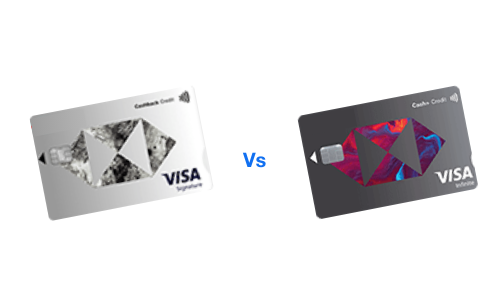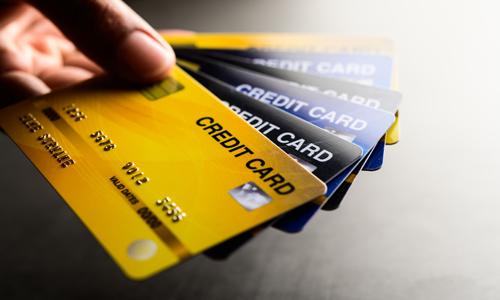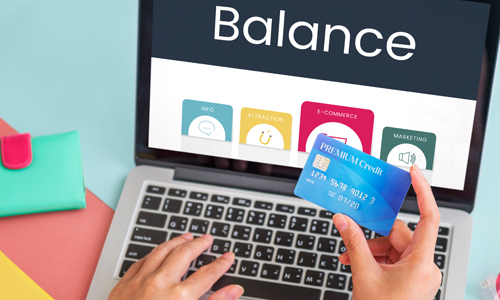6 Ways Credit Cards Affect your Credit Score

Everything that one does with the credit card has an impact on the credit score – from applying for one to actually using one. Even not holding one can impact your credit score.
Your credit score is a 3 digit number that is calculated using the information available on your credit report (that is a record of your loan and credit card accounts). This indicates your repayment capacity for the loan that is given out to you. Every month or so your credit card provider reports the activity of your account to the credit bureaus that are then to be included in your credit report.
That means that your credit card balance, credit limit, account status, payment history, and the date of accounting opening – everything will influence your score.
Your Credit Score is Affected if You Have No Credit Cards
If you are among many of the customers who are not holding any credit cards, there could be an impact on your credit score. That is, of course, if you have a credit score in the first place. Without any active and open accounts being listed in your credit report, you will not be having a credit score. And not having any credit score will make it quite difficult for you to be approved for a car loan, for a mortgage, and in some cases even an apartment.
Credit cards are among the easiest kinds of credit accounts that one can qualify for which also makes them a suitable option when it comes to establishing and also building a good credit history. If you are able to manage your credit properly, it will be reflected in your credit score.
| Check What Affects your AECB Credit Report |
Your Credit Limit and Card Balance Information
Many of the credit cards come with a preset credit limit which determines the maximum amount made available to the cardholder by the credit card provider for the credit on the card. When you use up all of your credit limit assigned on the card, it makes you seem like a risky borrower, and therefore, your credit score is ought to suffer because of this credit behavior.
Many of the credit card providers also report a high balance. This is the highest balance that has been ever charged on your credit card. Therefore, even if you max your credit limit and then move forward and pay off your entire balance, your credit report might still show the high balance.
It is ideal to keep the balance on your credit card below 30% of the total credit limit so that you do not come across as an irresponsible borrower.

Your Monthly Payments on Credit Cards
Your credit report has a listing of your last payment on your credit card, however, it is not factored in while calculating your credit score. Even so, the amount of your payment can indirectly impact your credit score. Always keep in mind that the balance that is relative to the limit on your credit cards is a part of your credit score. If you make larger payments, your outstanding dues reduce quickly and then can help in boosting your overall credit score.
One of the most important factors that have an impact on your credit score is the timelines of the payments on your credit cards. Your credit score can be boosted by timely payments and at the same time can come down because of late payments.
In the case of most types of accounts, any late payments are not reported to the bureaus until they are late by 30 days. You may be charged a late payment fee by your card provider if you are late by a few days for your payment, but your credit score should remain safe as long as you clear your dues before 30 days past due.
Credit Card Applications
Every time you go ahead and apply for a credit card, your application record goes onto the credit report you have. Your credit score does not factor in your approval or disapproval of the credit cards. However, making the credit card application can have quite a negative impact on your credit score. Your credit score can be hampered if you go ahead and put in numerous applications in a short period of time. For the same reason, it is best to keep the applications of credit cards to a minimum.
The Number of Your Credit Cards
If you have too many credit cards, your credit score can be impacted in a negative manner. Unfortunately, the companies who actually develop the credit score have not disclosed the exact number of credit cards that can impact your credit score. The number of credit cards is likely to vary from one person to another.

Holding Your Credit Cards for a Longer Tenure
The longer are your credit cards open, the better is the impact on your credit score, especially if your payment history is positive with the credit cards. You should ideally keep your oldest credit cards around and then make sure to use them every now and then so that your credit score is helped. At the same time, make sure to keep a lookout for the deals on your credit card regularly from time to time.
If you are holding a good credit score, there are high chances of you getting approved for a credit card that has better terms and rewards as compared to the one that you have had since you were in your young adult days.
The key to ensuring that your credit cards do not impact your credit score is to keep them active and open, along with low balances and good standing.
| You may also like this - Credit Score in the UAE - All You Need to Know |
More From Credit Cards
- Recent Articles
- Popular Articles
















